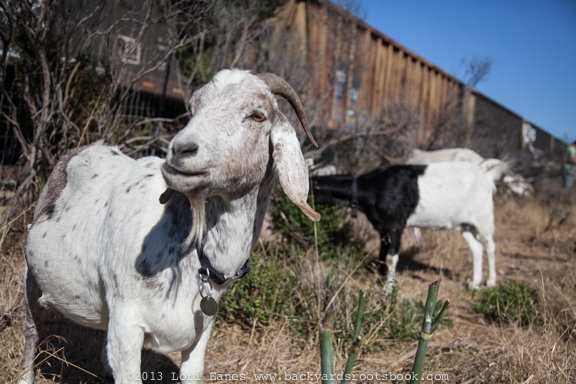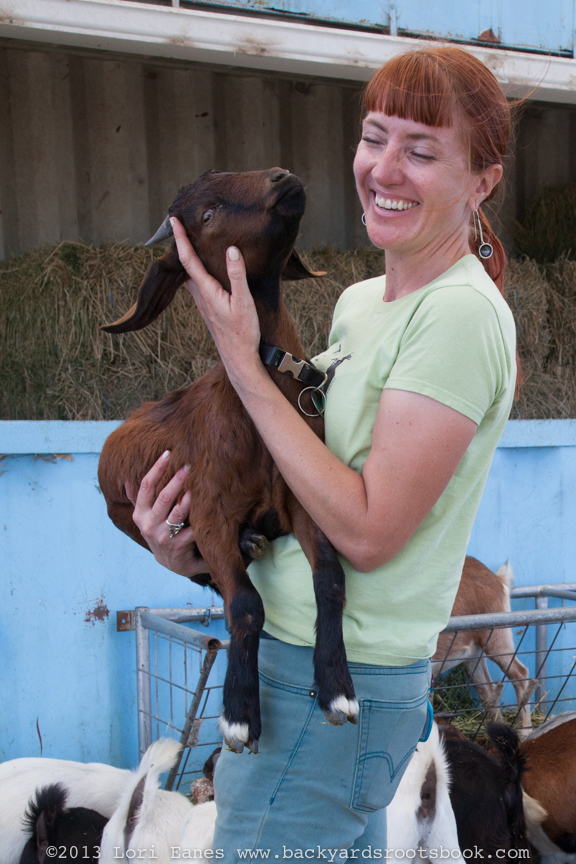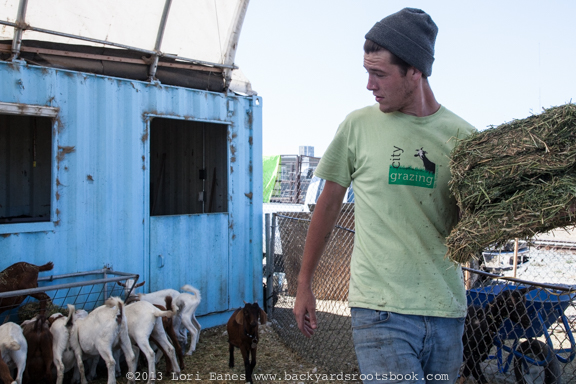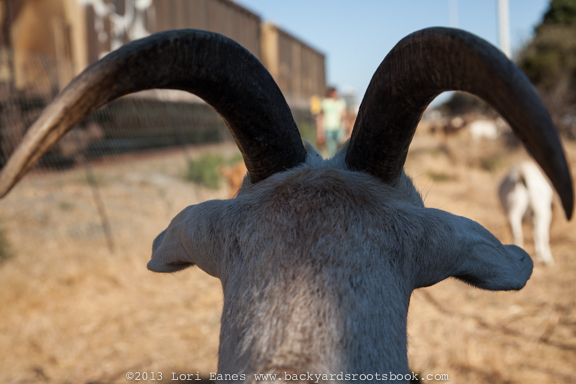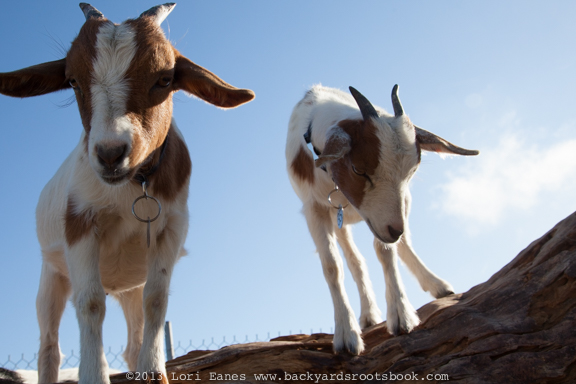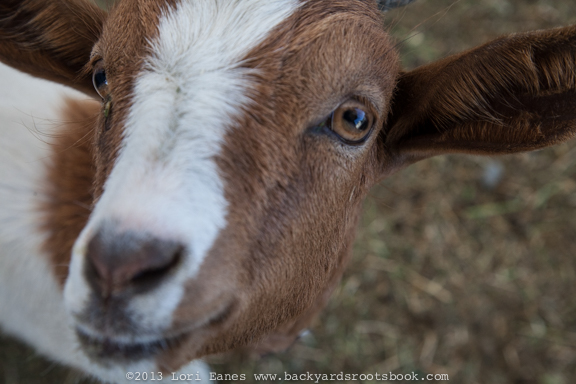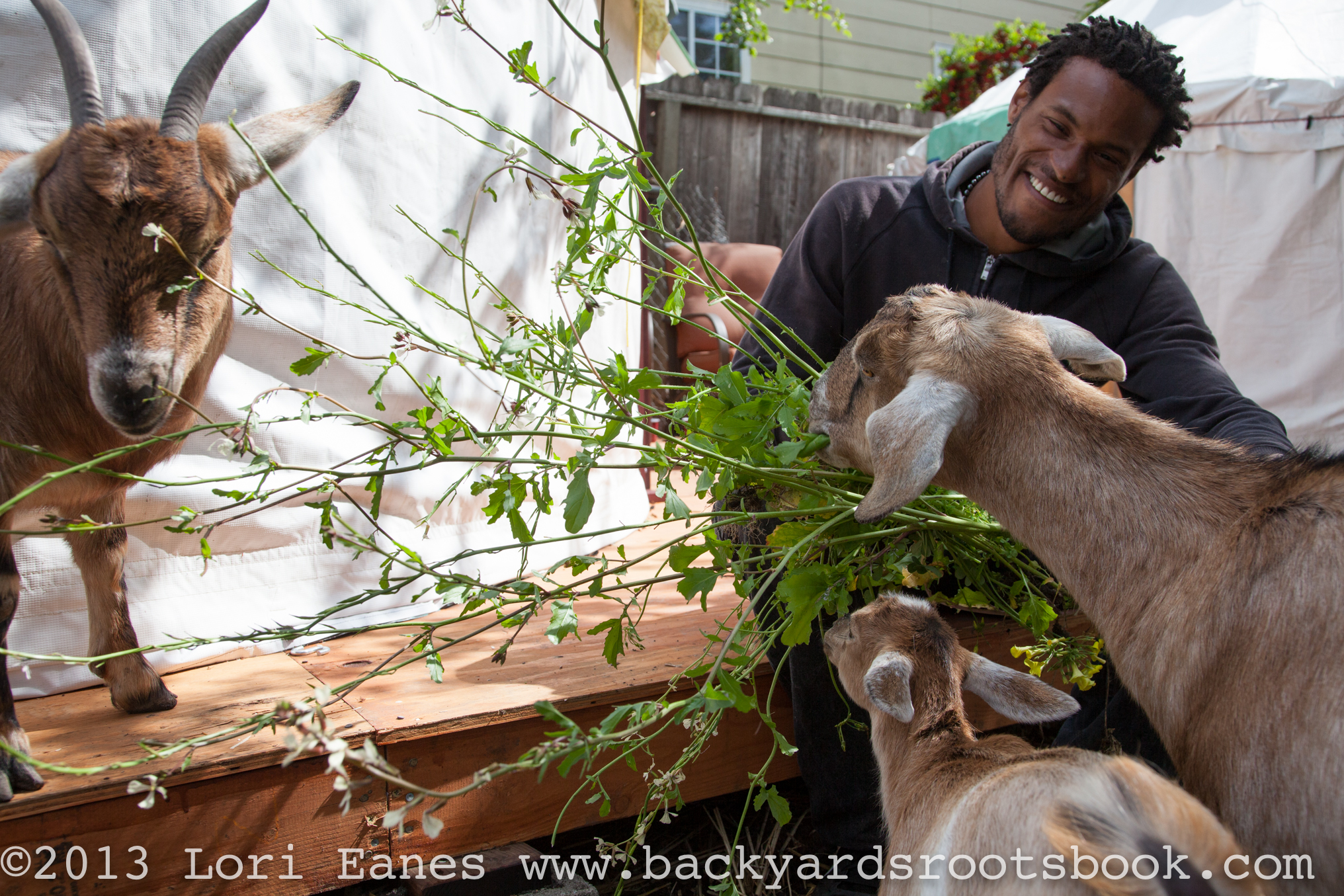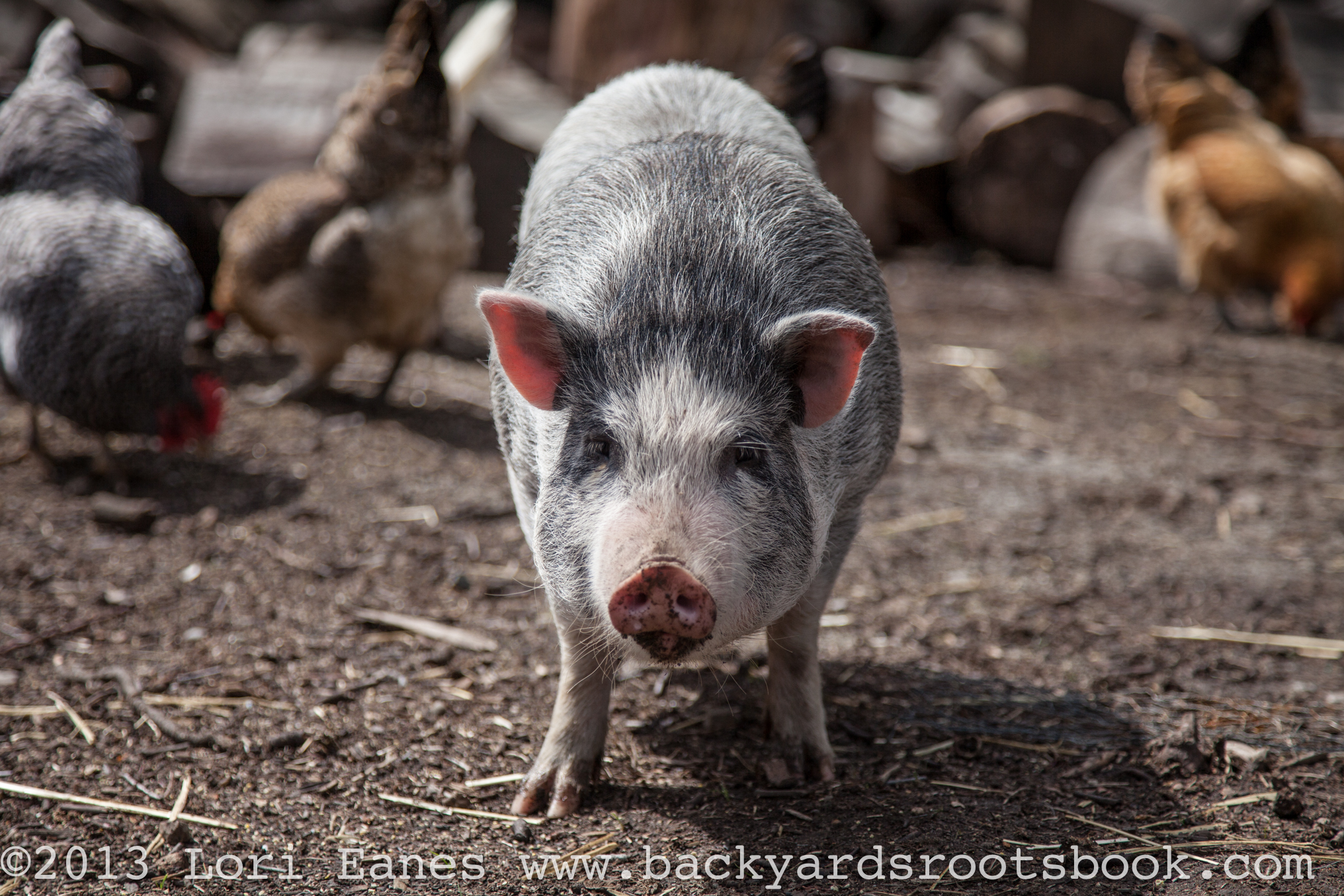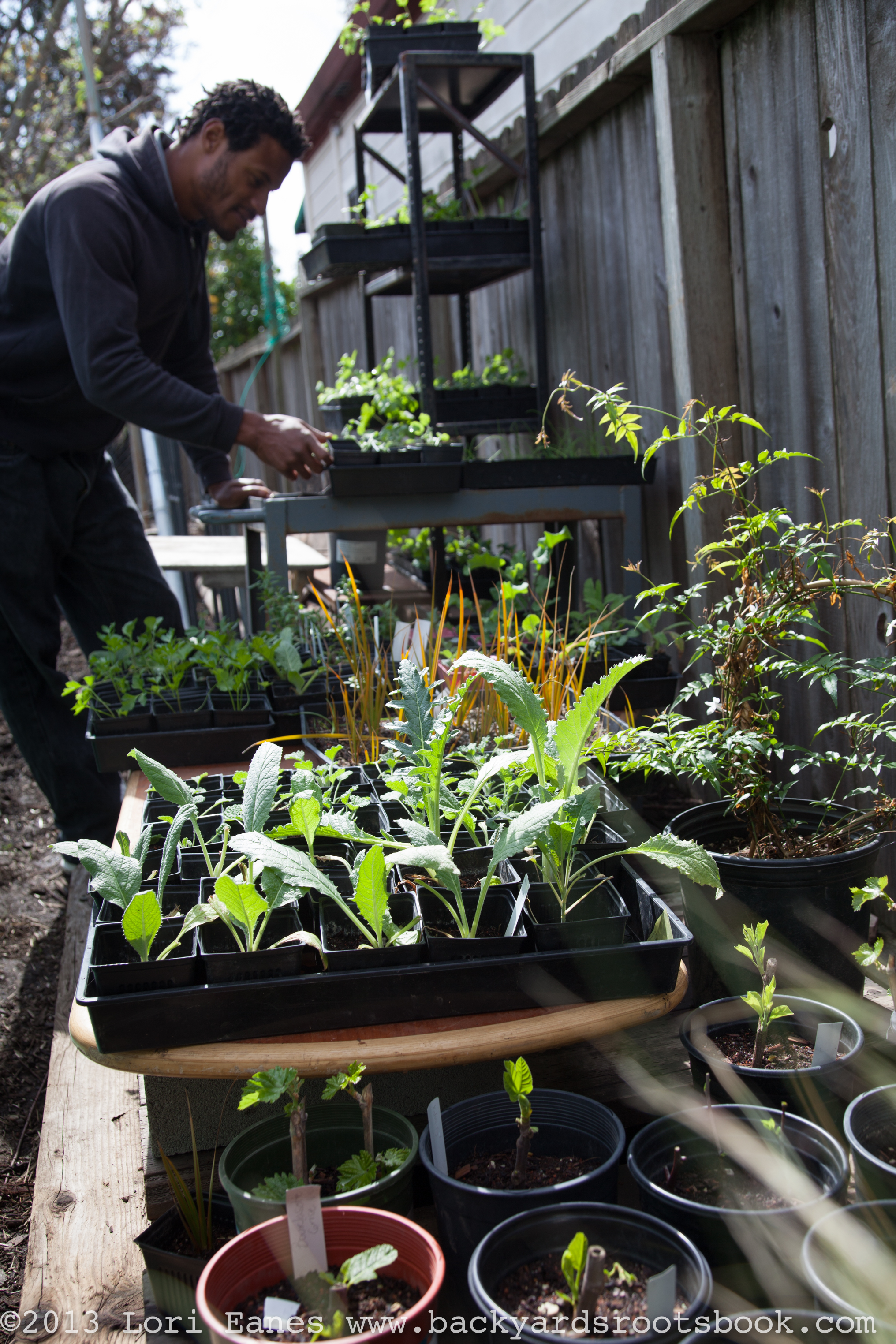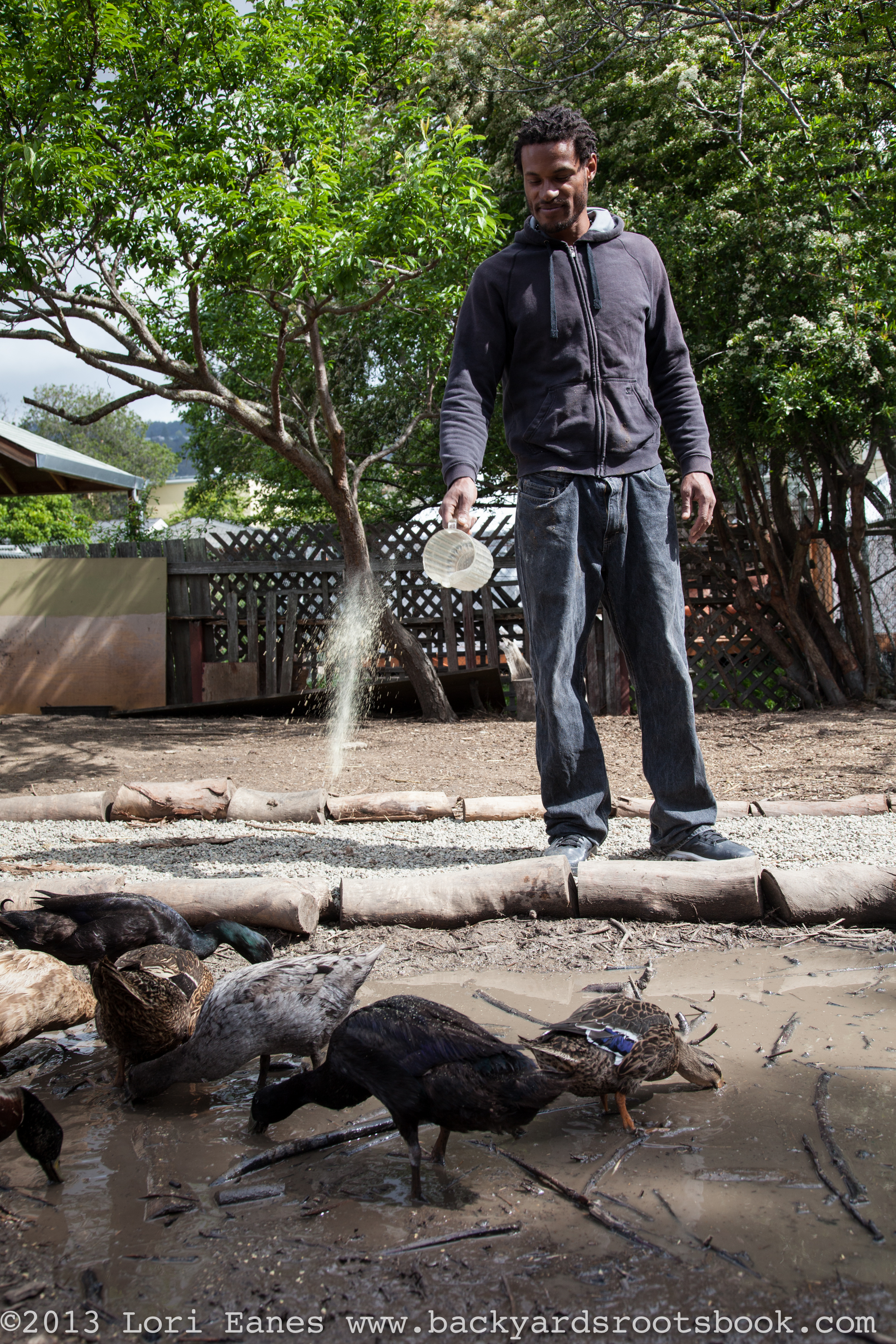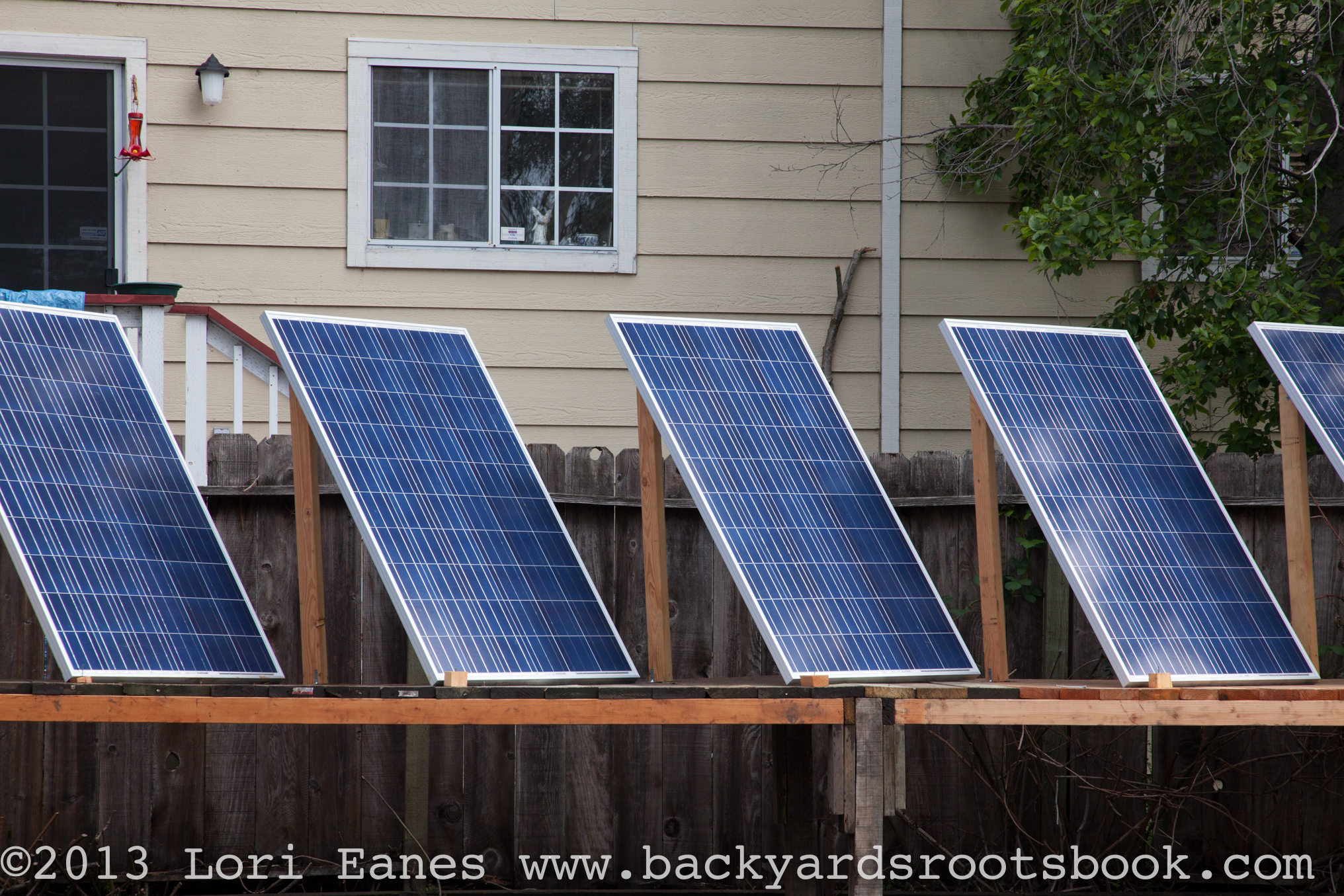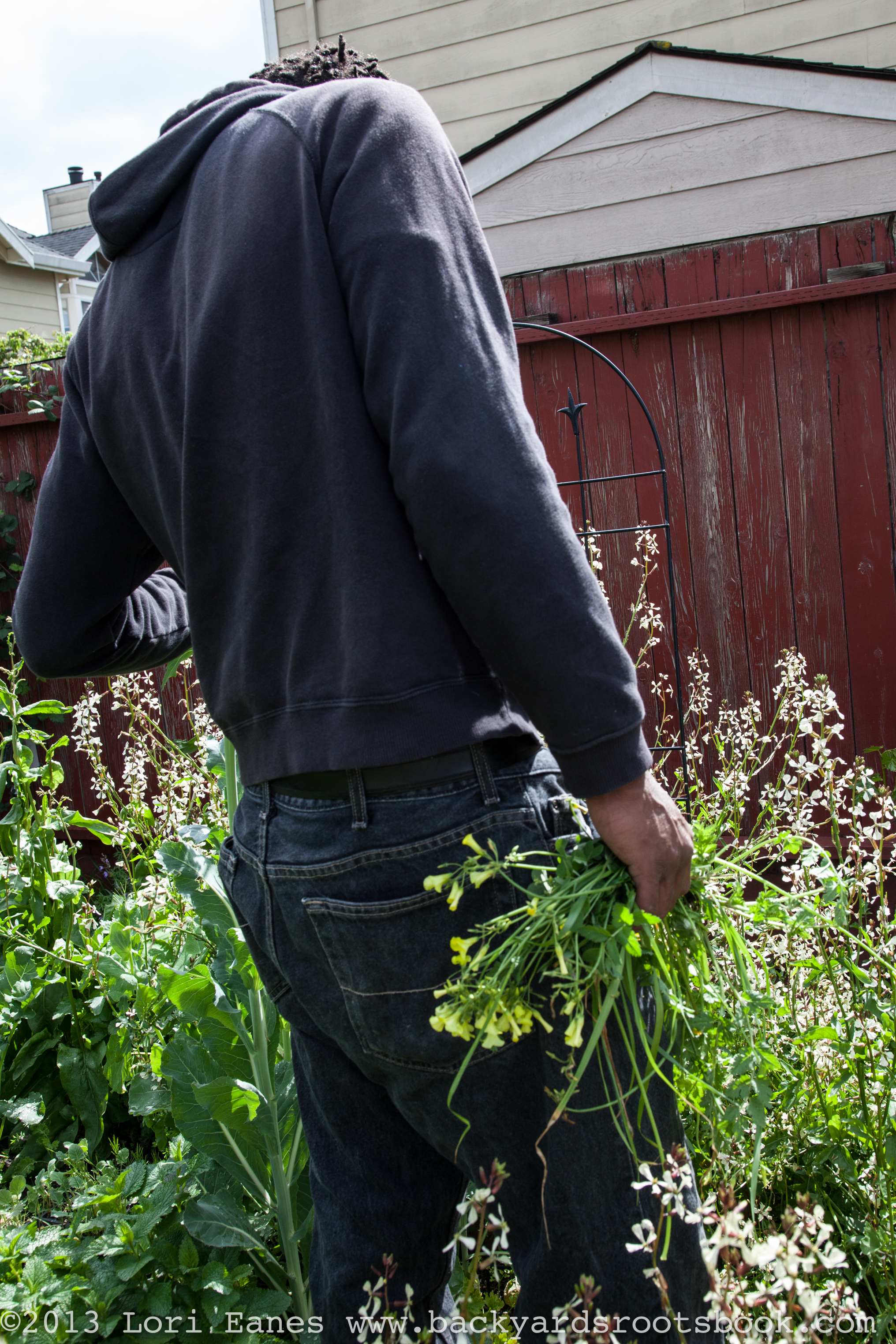I’ve always wondered about the goats I’ve seen grazing along the railroad tracks in San Francisco’s Bayview District. Recently I got the chance to meet manager Genevieve Church and learn about the city’s largest herd of weed eaters.
It all started six years ago when Genevieve’s boss, David Gavrich brought in goats to keep the weeds down along the railroad tracks at his company, Waste Solutions Group. Later he started renting out the herd to others and City Grazing was born. Genevieve started working for City Grazing in 2012 as a part time goat herder. Today she manages full time. She’s named all of the nearly 100 animals in the herd and she loves working with them. “They are really smart animals she says “and unlike sheep, they can be separated into smaller herds and recombined again, making a single herd leader unnecessary. Instead we have many animals with good leadership qualities.”
Goats are also very strong, independent and hardy. Pound for pound they are about 4 times as strong as dogs. They are “opportunistic browsers” and are perfect for clearing invasive weeds such as blackberries and ivy, which are high in salt and copper, two minerals that goats need. The myth of goats eating anything is partly because of their need for salt and minerals.
I was surprised to see all the goats with their horns still attached since some cities require them to be disbudded. Genevieve says she feels there’s no reason to remove them. The horns are part of the goats and they use them. She’s also noticed the animals are better behaved with the horns attached. “The ones that came to us without horns act like they have something to prove” she says. The horns are also natural handles and are useful when trying to guide them.
City Grazing rents out the goats to clear public and private land and there are lots of advantages for using them for weed control: they work in rough terrain, there’s no hauling of debris, or need for herbacides and they fertilize as they go. The cost for renting the goats ranges from $300 in San Francisco and there are four factors Genevieve uses to estimate a job: location, fencing needs, size and type of vegetation. The goats also are rented out for events like birthday parties, weddings and photo shoots. Since Genevieve knows them all she’s able to help pick the right goat for the job.
This year has brought many new kids to the herd. 29 does gave birth to over 50 kids. City Grazing is in the process of switching to smaller sized animals that are easier to transport and control. Visit citygrazing.com for more info.

